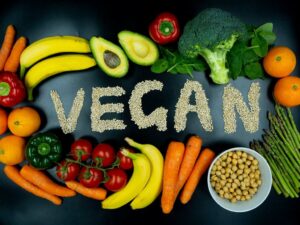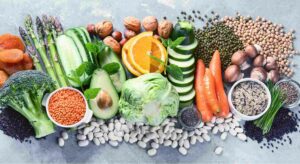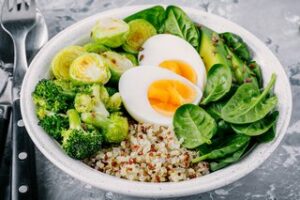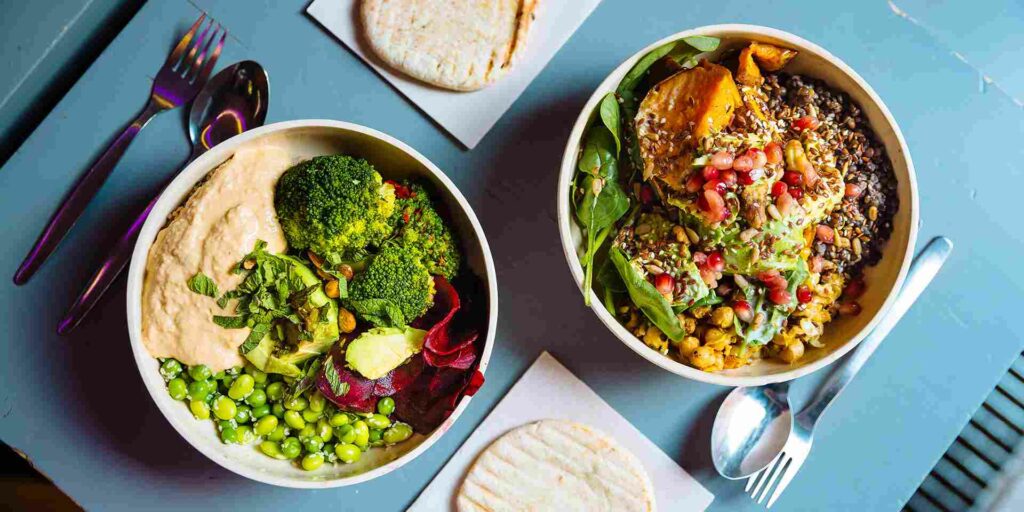If you are thinking about going vegan, you are not alone. Veganism is becoming more and more popular each year. But what exactly is a vegan diet? And what do you need to know before making the switch? In this blog post, we will answer all of your questions about veganism and provide some tips for making the transition easy!
Contents
What Is Vegan Diet?
This diet is followed by people who choose to abstain from animal products for ethical, environmental, or health reasons. This includes avoiding all meat, poultry, fish, dairy, eggs, and honey. Some vegans also do not use any animal-derived products such as leather or wool.

There are many different reasons why people may choose to go vegan. For some, it is a way to express their compassion for animals. Others may do it for environmental reasons, as animal agriculture is a leading cause of deforestation, water pollution, and greenhouse gas emissions. Some people may also find that they feel healthier when they switch to a vegan diet.
Whatever your reason for choosing veganism, it is important to do your research before making the switch. This way, you can make sure that you are getting all the nutrients your body needs and that you are prepared for any challenges that may come up.
What To Expect When Switching To A Vegan Diet
The first thing you need to know is that switching to a vegan diet will not happen overnight. It is a gradual process that takes time, effort, and planning. You may find it helpful to start by cutting out one animal product at a time. For example, you could start by eliminating meat from your diet, then poultry, fish, dairy, and so on. Or, you could try going vegan for one day each week and gradually increase the number of days each week that you are vegan.
Another important thing to keep in mind is that a vegan diet is not necessarily a healthy diet. Just like with any other diet, it is important to make sure that you are getting all the nutrients your body needs. This means eating a variety of whole foods such as fruits, vegetables, and whole grains. It is also important to include a source of protein at each meal, such as beans, tofu, or tempeh. Additionally, you may want to consider taking a daily vitamin B12 supplement, as this nutrient is found mostly in animal products.
If you are thinking about switching to a vegan diet, there are many resources available to help you make the transition. There are cookbooks, websites, and even vegan meal delivery services that can make the process easier. You can also talk to your doctor or a registered dietitian to make sure that you are getting all the nutrients you need.
Types Of Vegan Diet

There are three different types of vegan diets. They are:
- Whole-food vegan diet: This type of diet includes plant-based foods that are unprocessed and unrefined. Examples of whole-food vegan foods include fruits, vegetables, legumes, nuts, and seeds.
- Raw food vegan diet: A raw food vegan diet consists of plant-based foods that are not cooked above 118 degrees Fahrenheit (48 degrees Celsius). Raw food vegans eat a lot of fruits and vegetables, as well as nuts, seeds, and sprouted grains.
- The 80/10/10 diet: Also called the low-fat, raw-food vegan diet, this way of eating focuses on getting 80 percent of your calories from carbohydrates, 10 percent from protein, and 10 percent from fat. Most of the fats come from nuts and seeds.
- Starch solution diet: Also known as the McDougall program, this type of vegan diet is based on starch and carbohydrates. The idea is to eat mostly starches like potatoes, rice, and beans. You can also have small amounts of fruits, vegetables, and proteins.
Benefits Of A Vegan Diet
There are many benefits of following a vegan diet. These include:
Weight loss
A vegan diet can help you lose weight because it is generally lower in calories than other diets. This is due to the fact that vegan foods tend to be lower in fat and higher in fiber. Fiber combined with water helps to fill you up and keep you feeling satisfied. In one study, people following a vegan diet lost more weight than those following a calorie-restricted diet. This could be due to the fact that vegan diets are often higher in fiber and lower in fat.
Lower risk of heart disease
A vegan diet can help to lower your risk of heart disease because it is typically low in saturated fat and cholesterol. Furthermore, vegan diets tend to be high in fiber and antioxidants, which are both beneficial for heart health.
Lower risk of cancer
Vegans have a lower risk of developing cancer than non-vegans. This may be due to the fact that vegan diets contain more fiber and antioxidants, and less saturated fat. In cancer prevention, these nutrients are thought to be beneficial.
Improved digestion
Fiber is an important nutrient for digestive health. It helps to keep things moving along your digestive tract and can also help to reduce constipation. Vegans tend to consume more fiber than non-vegans, which may help to improve their digestion. Moreover, gut bacteria rely on fiber for food. As such, a vegan diet that is high in fiber may also promote the growth of healthy gut bacteria.
Lower blood sugar levels
A vegan diet can help to lower blood sugar levels. This is because vegan foods tend to be lower in sugar and carbohydrates than animal-based foods. Fiber releases sugar at a slower rate, so it doesn’t cause spikes in blood sugar levels.
Lower cholesterol levels
A vegan diet can also help to lower cholesterol levels. This is because vegan foods are naturally low in cholesterol and saturated fats. Saturated fats can raise your cholesterol levels, while unsaturated fats can help to lower them.
What Can I Eat On Vegan Diet?
There are many delicious and nutritious vegan foods to choose from. These include:

- Fruits and vegetables: All fruits and vegetables are vegan, including fresh, frozen, and canned varieties.
- Grains: Whole grains such as wheat, oats, barley, quinoa, rice, and corn are all vegan. You can also eat vegan bread, pasta, and cereal.
- Legumes: Legumes such as beans, lentils, and peas are all vegan. You can also eat tofu, tempeh, and other soy-based products.
- Nuts and seeds: All nuts and seeds are vegan, including almonds, cashews, peanuts, walnuts, and more. You can also eat nut butter and oils.
- Dairy alternatives: There are many dairy-free options available that are suitable for vegans. These include plant-based milk made from soy, almond, coconut, or rice. You can also find vegan cheese, yogurt, ice cream, and butter.
- Herbs and spices: All herbs and spices are vegan, including salt, pepper, garlic, ginger, and more. You can also find many vegan condiments such as ketchup, mustard, and salsa.
- Healthy fats: Healthy fats such as olive oil, avocado oil, and coconut oil are all vegan.
- Miscellaneous: Other vegan foods include maple syrup, molasses, coffee, tea, and chocolate.
Foods To Avoid On Vega Diet
There are certain foods you should avoid on a vegan diet, including:
- Animal-based products: This includes meat, poultry, fish, shellfish, eggs, and dairy products.
- Honey: Some vegans consider honey to be an animal-based product because it is produced by bees.
- Gelatin: Gelatin is made from animal collagen and is often used as a thickener or gelling agent in food.
- White sugar: White sugar may be processed with bone char, which is derived from animal bones. However, many vegans consider white sugar to be vegan-friendly.
- Refined oils: Some refined oils such as palm oil may be processed with animal fat. However, many vegans consider refined oils to be vegan-friendly.
Limitations Of The Vegan Diet
A vegan diet has many health benefits, but there are also some potential drawbacks.
- You may miss out on important nutrients: While a well-planned vegan diet can provide all the nutrients you need, it’s possible to miss out on important nutrients if you don’t plan your meals carefully. This is especially true for vitamins B12 and D, iron, calcium, and omega-3 fatty acids.
- You may need to take supplements: To avoid missing out on important nutrients, you may need to take supplements. Vegans should take a supplement that contains vitamin B12, and they may also need to take supplements for other nutrients such as vitamin D, iron, and calcium.
- You may need to eat more calories: Because vegan foods tend to be lower in calories than animal-based foods, you may need to eat more food to get the same number of calories.
Conclusion
A vegan diet has many health benefits, including reducing your risk of chronic diseases and losing weight. However, there are also some potential drawbacks to the vegan diet, such as missing out on important nutrients and needing to take supplements. If you want to follow a vegan diet, make sure to plan your meals carefully and consult with a registered dietitian.
Consider contacting FitMantra for additional information on nutrition and fitness. You can also get in touch with their nutrition experts through our online nutrition counseling, who can guide you through the process and help you achieve your fitness goals. You can also lose weight with the help of our weight loss program. Download our FitnessApp on Android to know more about us.
